You are just starting your French Pâtisserie journey? You see all these fancy pastries and wonder which pastry tools you need to get started? Maybe you have no idea what is worth investing in at this point?
To make things easier for you I have listed below my Top 10 Baking and Pastry Tools I use and love the most. Most of them are rather basic and you might already have them in your kitchen. Every listed tool also comes with an explanation what it is mostly used for. I also added in which case it would make sense for you to invest in that tool.
At the end of the page, you will further find my favourite online shops for pastry tools and equipment.
You’re ready? Let’s dive into my favourite pastry tools!
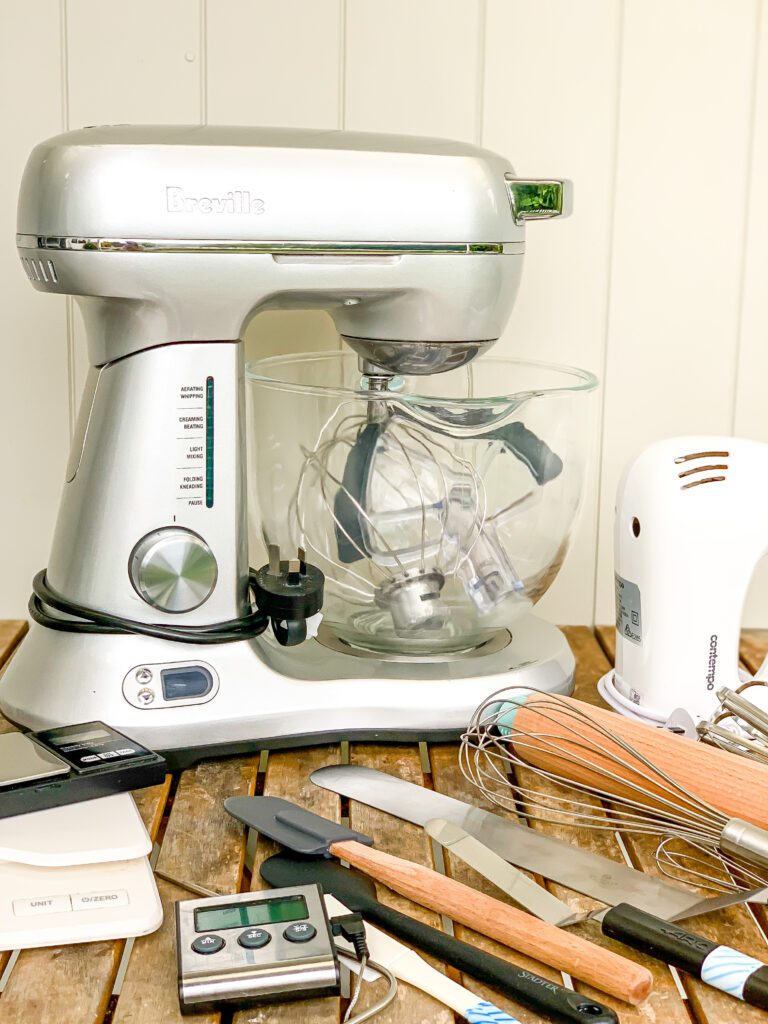
1. An electronic Kitchen Scale
Yes, I admit that this seems pretty basic. But I cannot imagine baking without it. Maybe it already happened to you that your recipe didn’t turn out the way you wanted it to be? That might be because you didn’t weigh correctly. This is something that can be avoided so easily. By weighing using an electronic kitchen scale you have one less thing to worry about.
Who is this tool for? Anyone really!
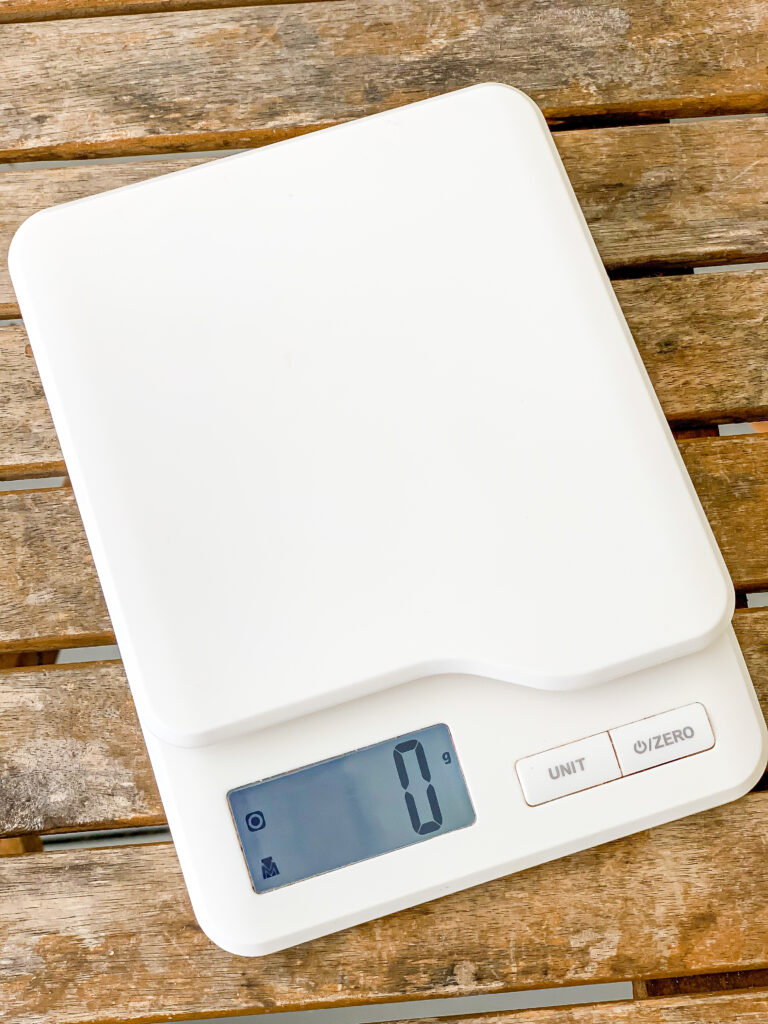

2. An electronic Precision Scale
Never saw a micro scale? Nor did I before I went to Pastry School. There I learnt pretty fast how amazing it is to have one. Let’s take my recipe for Apple cinnamon Rolls, here you need to weigh 2 g of salt for the puff pastry. A normal kitchen scale often doesn’t weigh that precisely, making it hard to add the right amount. And it would be a bummer if your puff pastry didn’t turn out the way it should’ve because you added too much salt.
Tip: You do not want to get a micro scale at the moment, but want to weigh as precisely as possible? Then don’t tare your kitchen scale before adding the “micro ingredient”. Sometimes, kitchen scales react slower if they are set to zero.
Extra Tip: If this still doesn’t work for you, weigh the smallest amount that your kitchen scale detects into a small bowl. For example, your scale measures 3 g, but you only need 1 g. Then you simply divide by eye and only use 1/3 for your recipe.
Who is this tool for? Anyone who wants to work as precisely as possible. Don’t forget, weighing the right amount is the basis for the success of your recipe!
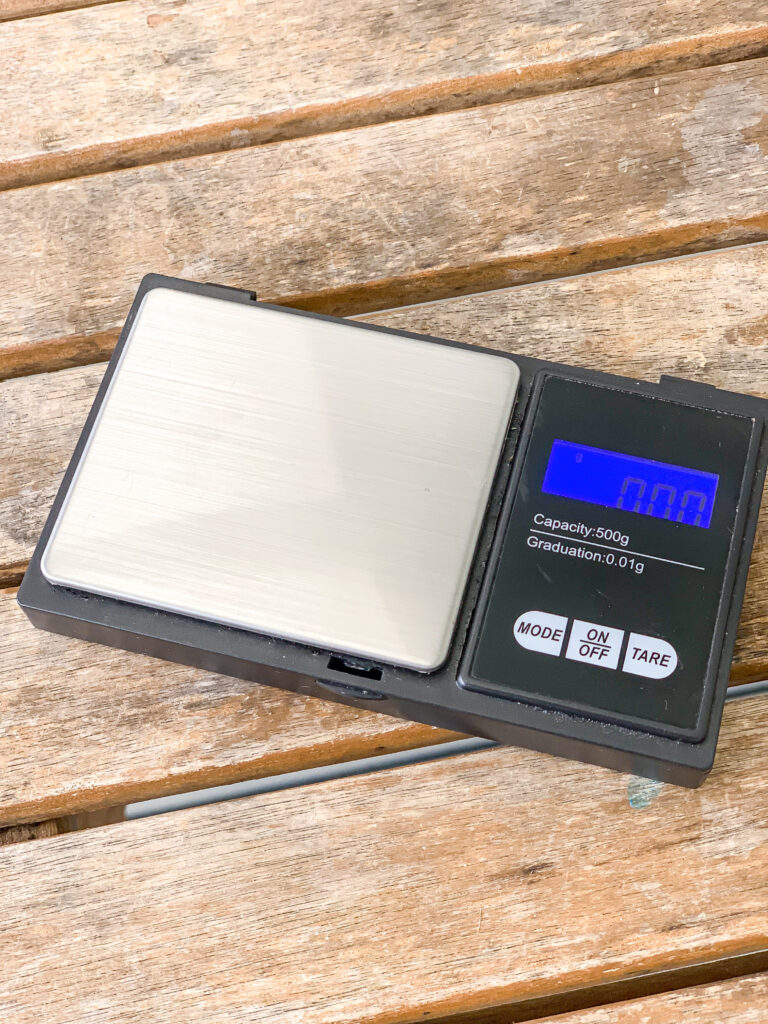

3. Bowls, Bowls and more Bowls
I don’t think you can ever have too many bowls. I’m sure you noticed that you can use an endless amount of them when making some more complex recipes! They are one of your best and most important friends when baking and help you stay organised. Say goodbye to constantly washing dishes because you need “just one more bowl”.
Who is this tool for? I think we all can use them!
4. A Hand or Stand Mixer
Anyone who ever tried to get stiff egg whites using a hand whisk knows how valuable a hand or a stand mixer is. If you don’t have any of it, I would recommend you to start with a regular hand mixer. I’ve used some cheap ones in my life and really, they do the job. Portable or not, that’s up to your preferences.
But how do you know if you should upgrade to a stand mixer? Let me just say that I got my beautiful, loved pistachio green Kitchenaid over 8 years ago. And I never ever regretted it because I knew that I will be baking my entire life and that I will eventually get a stand mixer.
Now you might say that it was an obvious choice for me – but back then I had just started studying sports and it took me another 7 years to switch to pastry professionally! You know yourself best. If you feel like you want to advance in French pastry, want to work more efficiently, faster and cleaner, then a stand mixer might be the right decision for you.
Who is this tool for? I really recommend getting some sort of mixer, it makes your life so much easier.
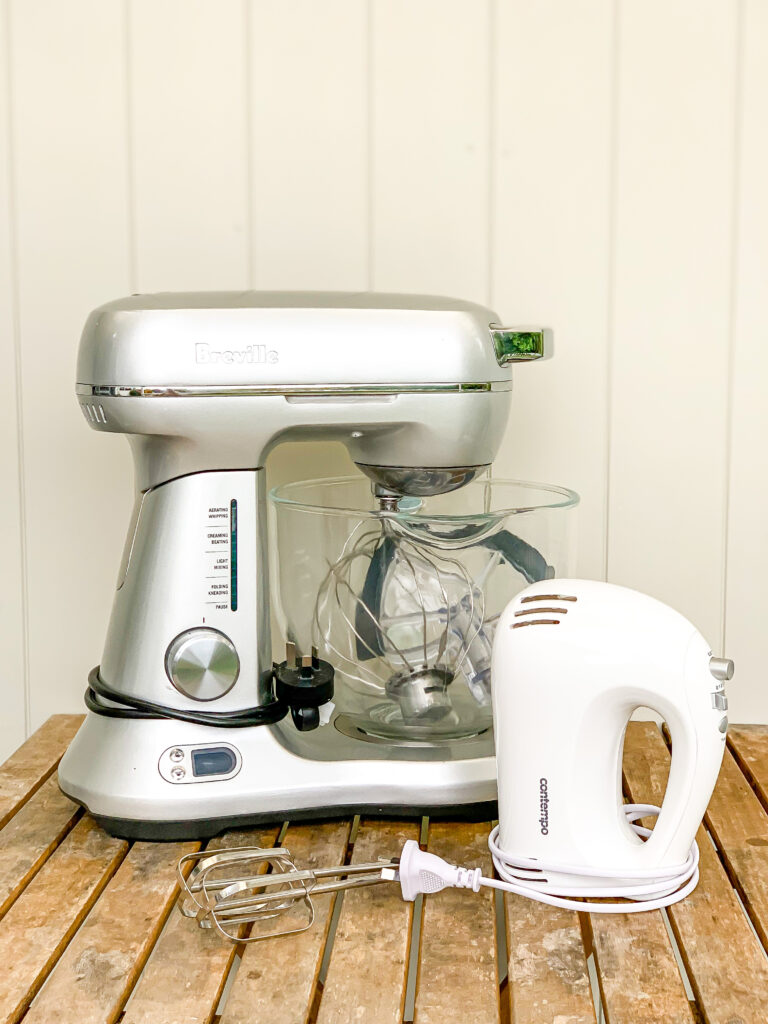

5. A Dough Scraper
You took all that time to precisely weigh your ingredients, followed precisely the recipe and got your perfect dough, mousse or cream – don’t let anything go to waste. A dough scraper is cheap to get and ensures that you get all of the deliciousness!
Who is this tool for? I think it’s an essential pastry tool for every baker, you can get them cheaply in any baking store but often also supermarkets have them.
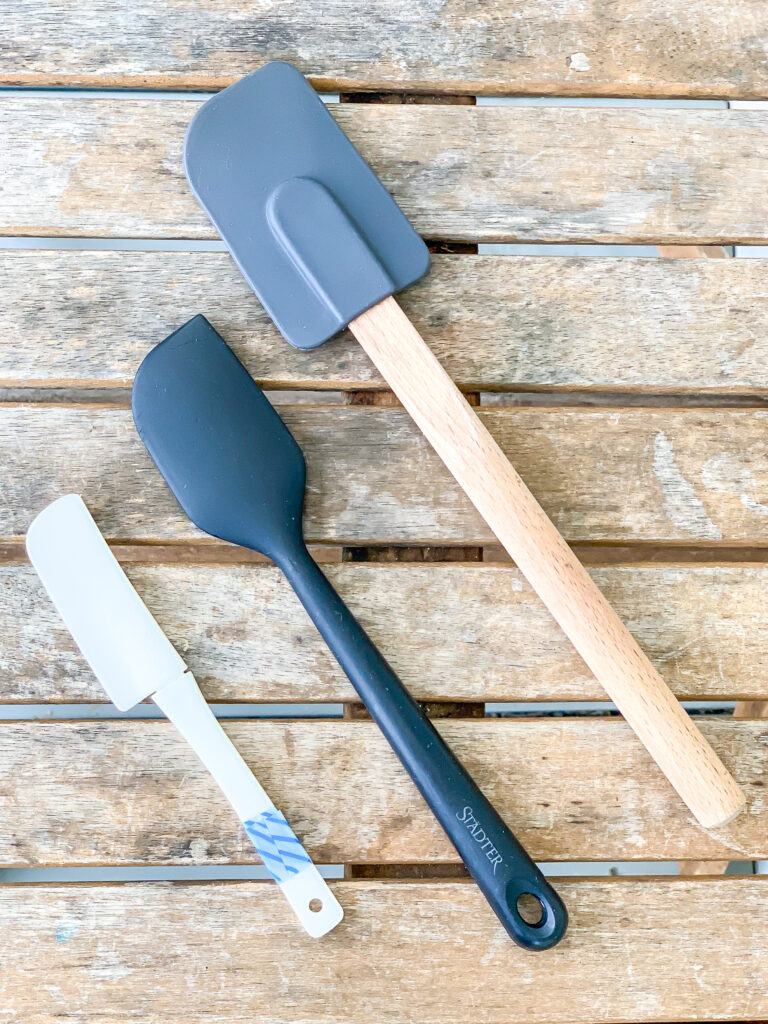

6. A small Spatula
My small spatula is my favourite tool. I use it all the time. Unfortunately I cannot always take my Kitchenaid with me but believe me, my small spatula never leaves me. Seems weird? I guess it is.
Now you might wonder what I’m using it for. Especially for making entremets, a small spatula comes in handy. Whether it is for spreading a croustillant or a mousse inside a mould, a small spatula is the tool I use. It is also good to have for smaller cakes like tartlets e. g. to take off excess filling.
Tip: In some cases a small spatula can be replaced by a spoon. But as soon as you want to smoothen surfaces (think of the tartlet above) a spatula will do a much better job!
Who is this tool for? You want to have perfectly smooth surfaces for your small cakes? Then this tool is for you.
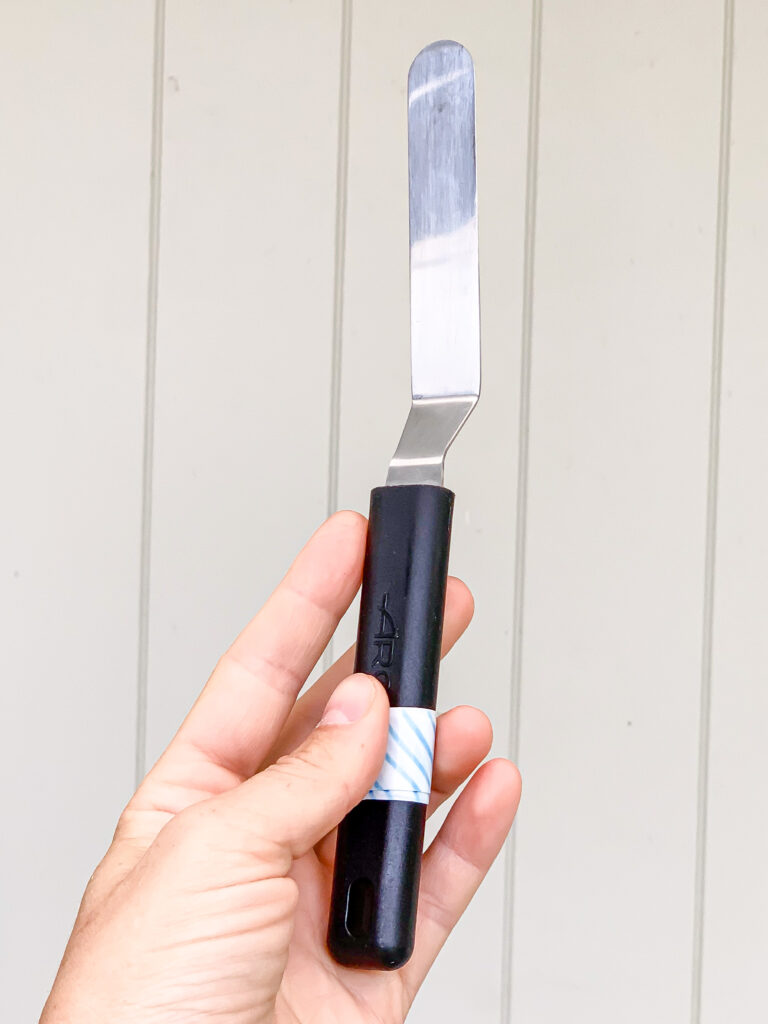

7. A big Spatula
This tool is the big brother of the small spatula. Anyone who does buttercream cakes probably already has one. In French Pastry, it is used to spread doughs evenly on a baking tray, to assembly an entremets, to take off excess glaze or to temper chocolate. You can get straight and curved spatulas, I personally prefer the curved one. This ensures some distance between your hand and what you’re working with. So no dough or mousse on your fingers, yay!
Who is this tool for? For French pastry, it is a bit more of an advanced tool I would say. But especially if you want to make entremets I recommend it.
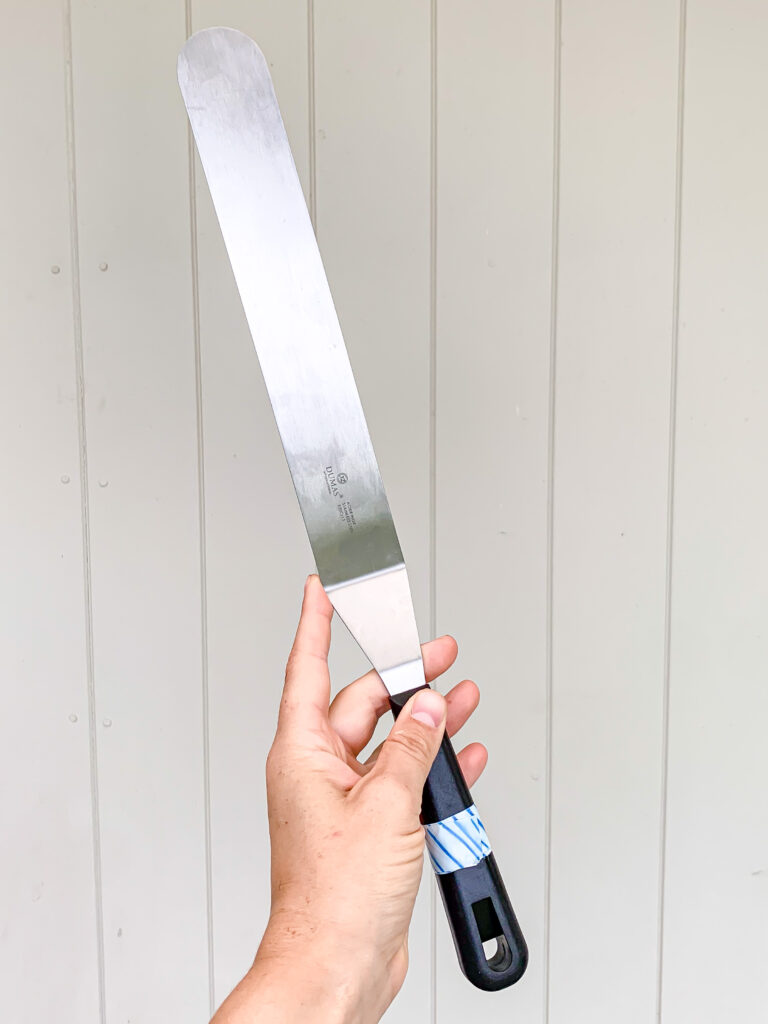

8. A Rolling Pin
This tool is not only useful to make more elaborated pastries like croissants or pain au chocolat. A rolling pin is also handy to have when you roll out your dough to make tartlet shells or to place some craquelin on top of your éclairs.
If you don’t already have one, I would recommend getting a French-style one. These are flat and don’t have handles, which makes it easier to apply pressure evenly.
Tip: If you go for a French-Style rollin pin you might consider getting one with silicone rings. These (in theory) allow you to easily roll out your dough at the chosen height. I think they’re great for starting out as you might not (yet) have a feeling for the height of 3mm of dough.
Extra Tip: If you don’t have a rolling pin but need one, look around the house. Maybe there is a different object that you could use instead? I did this before as I sometimes bake in the most random places. When baking at home I always prefer my French rolling pin though.
Who is this tool for? Want to roll out your dough evenly? Then you have your answer 🙂
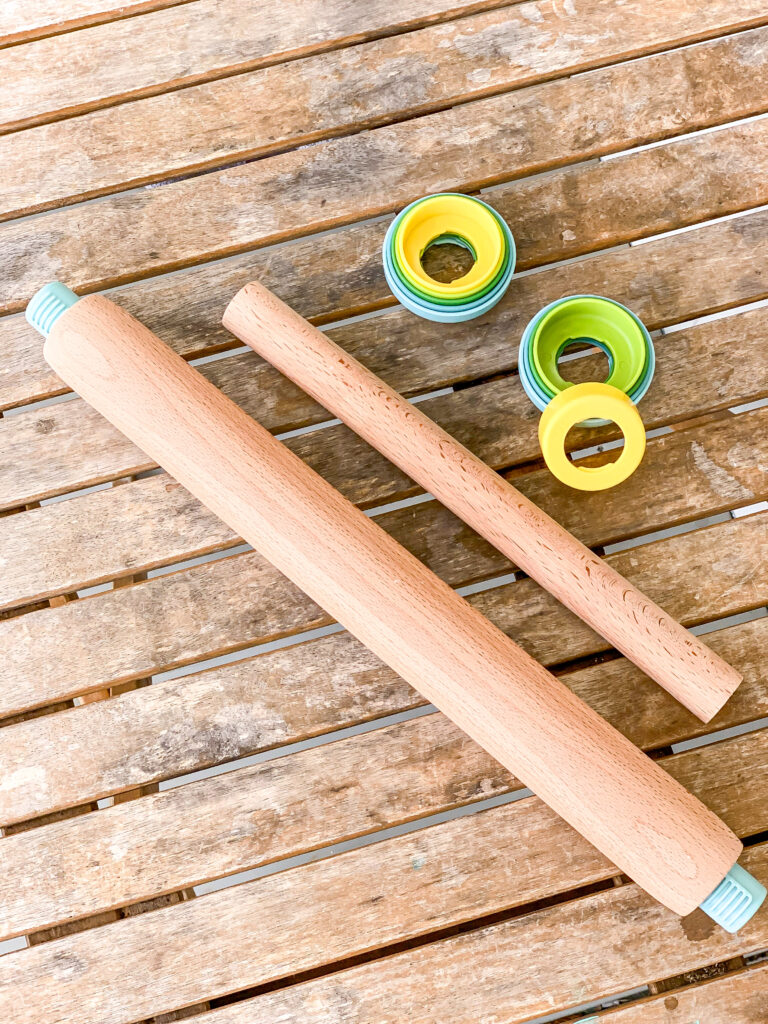

9. A Balloon Whisk
Whisks are a useful pastry tool to just quickly mix ingredients. I use them in situations where there is no need to get out the hand or stand mixer. Either because it’s just a quick stir, or because the hand mixer is too powerful even on lowest speed. Plus: it might save you from washing another bowl in the end of the day.
Who is this tool for? Even if you do not use it often, it is good for everyone to have at least one.
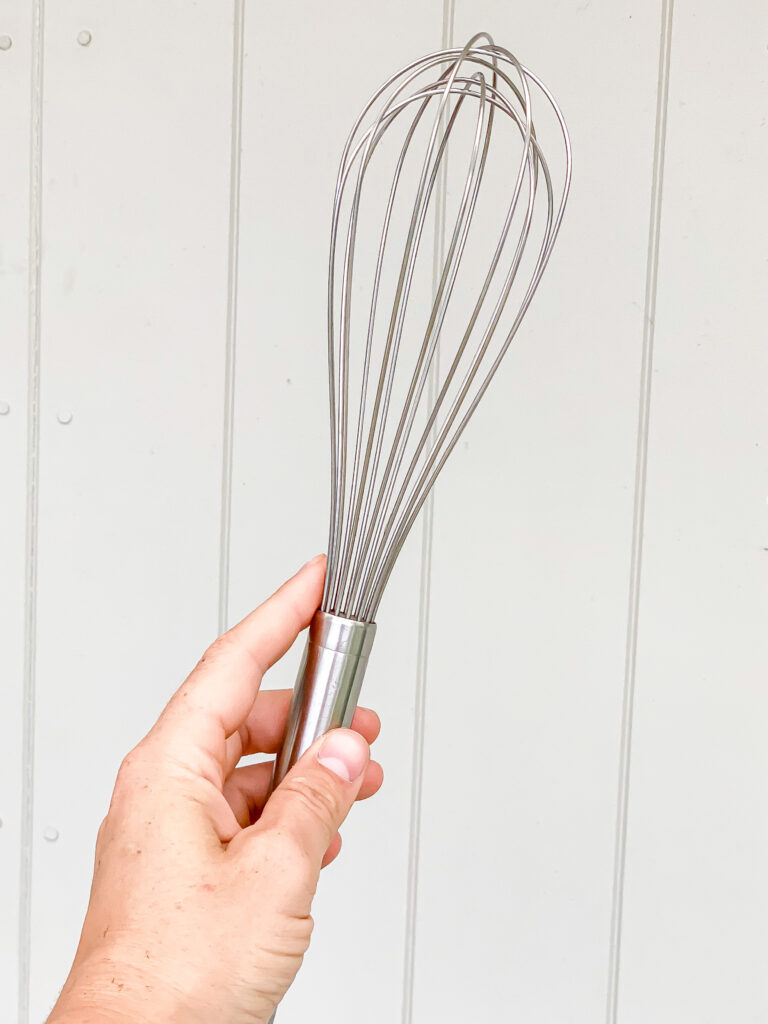

10. Digital Probe Thermometer
Ok, until here nothing seemed too unfamiliar or surprising right? Now let’s get a bit more specific! I could talk a lot about thermometers (I have three different ones!) but I believe that a digital probe thermometer is the best to start with.
Let’s take a recipe for Crème Anglaise, which is the base for a couple of French-style creams. Here, you need to heat your mixture to 83° C. If you don’t heat it enough your cream will be too runny and not stable enough. And if you heat it too much, the egg inside your mixture will cook too much, creating some sort of omelette. So both cases are not ideal.
It is possible to see by eye when your mixture has reached the right temperature, but if you don’t want to worry about that – get a thermometer with a probe and you’re safe.
Tip: For some of the thermometers you can even set a desired temperature. Once the temperature is reached, it’ll beep which can be really handy.
Who is this tool for? For anyone who feels ready to start recipes that need some more precision.
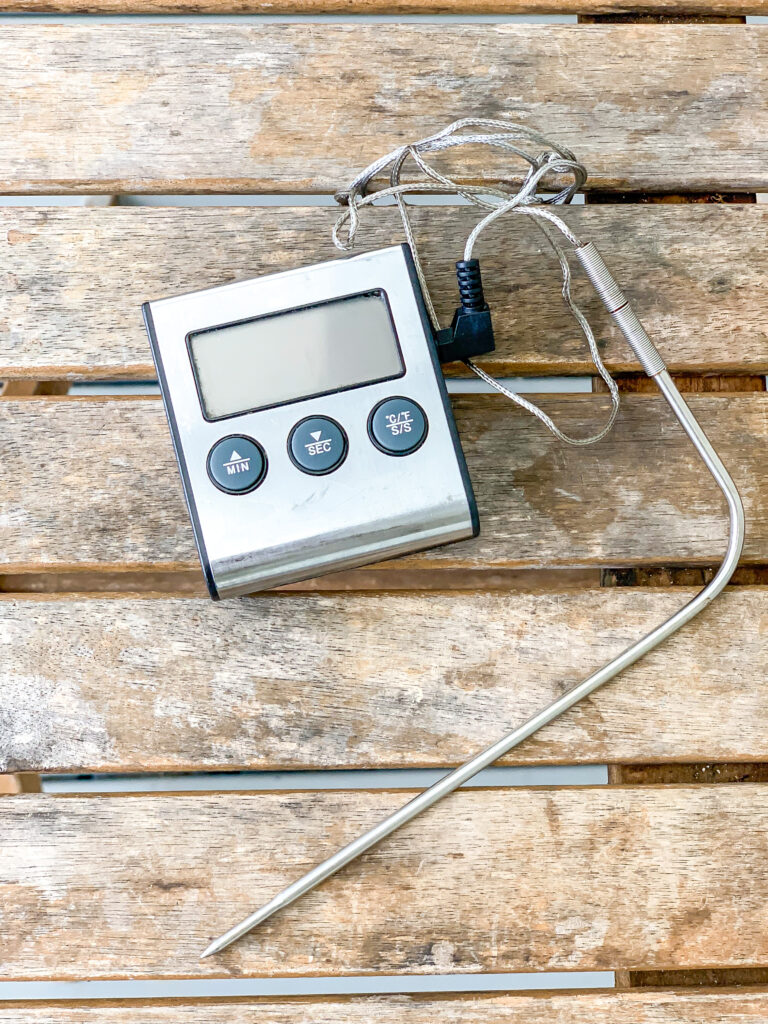

Where to find these pastry tools
You can find a lot of these items in stores, but in case you prefer online shops, I linked below my favourite ones for French Pâtisserie equipment!
- Meilleur du Chef (within Europe or reach out to them for other destinations)
- Cardin Deko (within Europe)
- Pastry Chef’s Boutique (US, Canada, Mexico – please note that I have no personal experience here)
Some of these pastry tools made you curious or you’d be interested in knowing more about my two other thermometers? Drop a comment below and let me know, I might just do another blogpost on my favourite tools for more advanced pastries!

